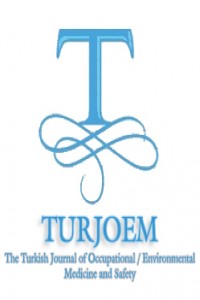Öz
Kaynakça
- Ankara University, Institute of Forensic Sciences, Ankara, Turkey
Öz
Forensic Toxicology has evolved greatly in recent years and today it
plays a vital role in courts and other public forums throughout the world, with
the potential to resolve the outcomes in criminal, coronial and civil
investigations. The field of forensic toxicology is very broad, including
analyses of drugs of abuse, clinical toxicology, drugs abuse in sport, alcohol
drugs and driving, post-mortem toxicology. In this study we will give an
overview of the existing usage and guidelines of forensic toxicology in United
Kingdom. Forensic toxicology has evolved throughout the centuries and has now
become a multidisciplinary and highly specialized tool in UK to investigate a
wide range of scenarios but mainly involving the potential effects of drugs and
chemicals on humans and animals. In these investigations, the three main
objectives are to considered such as establishment of if toxicants are present
and capable of contributing to death, if toxicants are present and capable of
causing behavioural changes and if substances are present and whether or not
they represent legitimate use or exposure.
The main quality
standards and protocols used in the analytical sector are published by ISO and
ISO/IEC. These guidelines have implemented the general principles established
transnationally and exemplify an overview of the best practice services in the
UK. They also used as the basis for new European guidelines for best practice.43
territorial police forces in England and Wales purchase forensic services from
private sector companies or service delivered to them by in-house police
laboratories.
Anahtar Kelimeler
Kaynakça
- Ankara University, Institute of Forensic Sciences, Ankara, Turkey
Ayrıntılar
| Bölüm | Articles |
|---|---|
| Yazarlar | |
| Yayımlanma Tarihi | 16 Şubat 2017 |
| Yayımlandığı Sayı | Yıl 2017 Cilt: Volume 2 Sayı: İssue 1 (1) - 2.İnternational Congress Of Forensic Toxicology |


